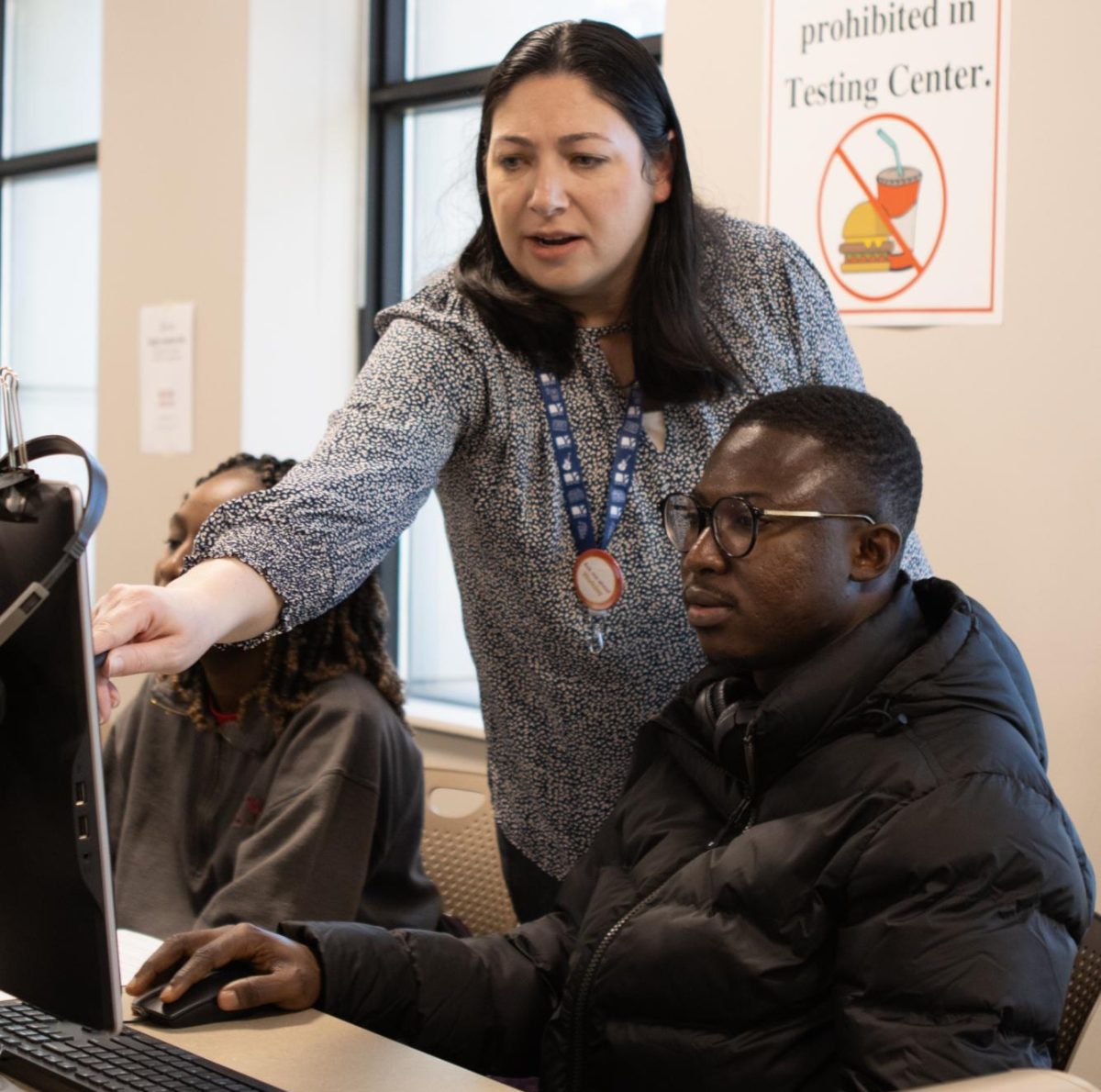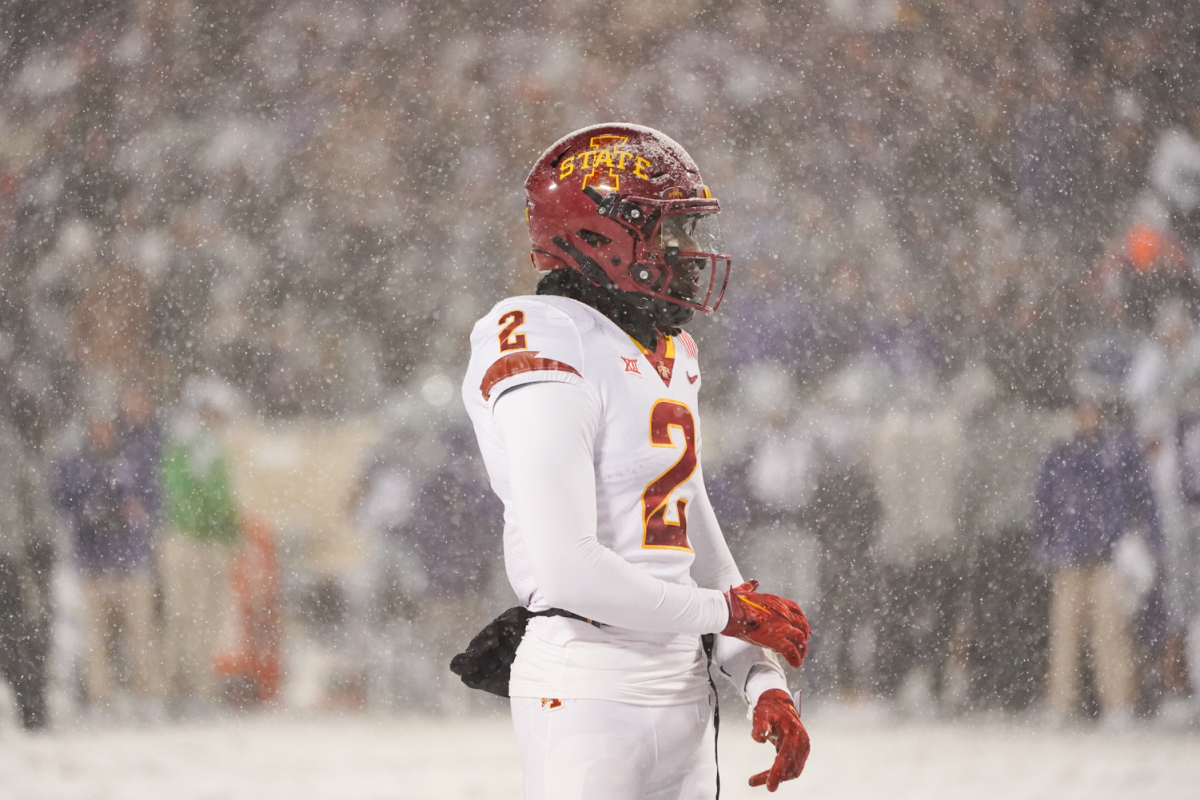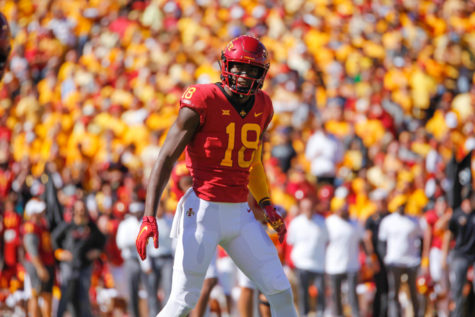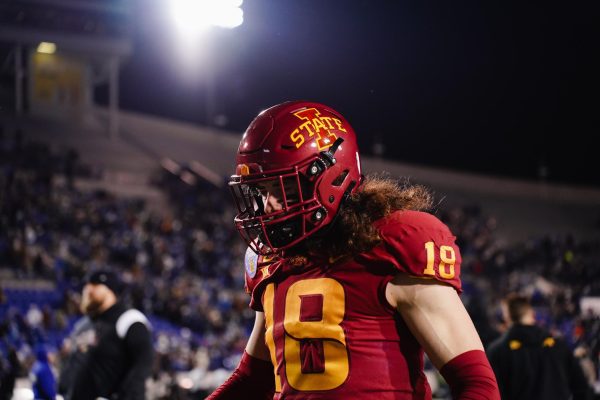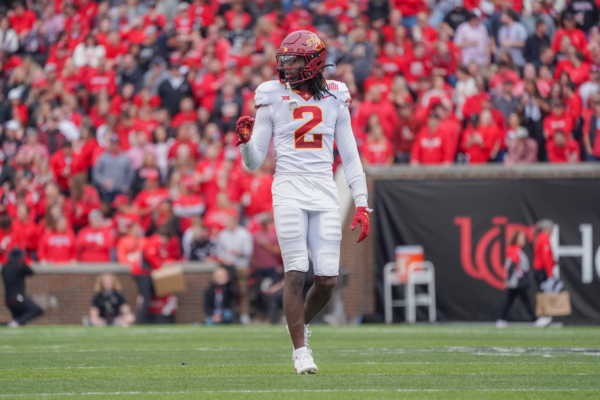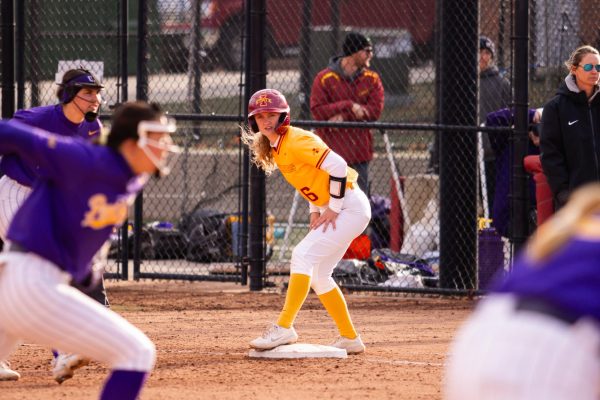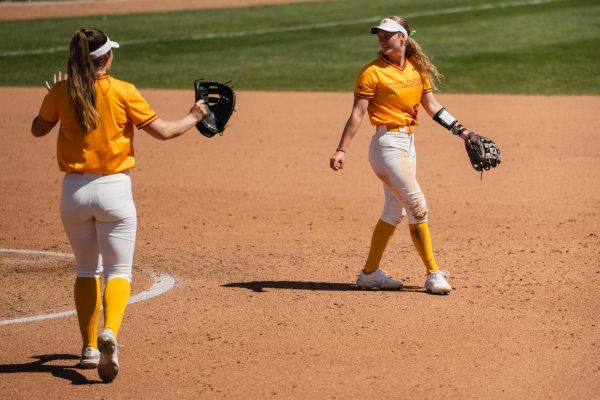Senior leadership returns as Cyclones win back-to-back individual titles
October 5, 2011
The sign of a leader is someone that stands out of the pack when a challenge is presented and shows them how to fight it.
Senior golfer Nate McCoy did that for his team, winning the Rees Jones Invitational. He finished with 210 strokes, nine better than second place.
Conditions and pin-placement never intimidated McCoy enough to affect his game, and he became the second straight Cyclone to win in as many tournaments. Freshman golfer Scott Fernandez won the VCU Shootout last week. It’s the first duo since 1996 when Jason Knutzon won the Billiken Intercollegiate and Chris Peterson won the Shocker Classic.
“Since it’s a hard golf course, winning this makes me feel confident,” McCoy said. “It’s definitely a good win after struggling in the first couple tournaments. It feels great to win a course like this.”
McCoy also becomes the first Cyclone to win multiple tournaments since Jeremy Lyons from 2000-2004.
Featuring a field with almost half the teams ranked high in the polls, being a medalist is a great accomplishment, but that’s just what a leader does.
“The course wears on players and then they begin to make stupid mistakes,” said assistant coach Patrick Datz. “If you are smart and patient, then you will play well. It’s not a surprise that Nate won.”
Putting was the difference between his showing in this tournament compared to the other ones so far this season. McCoy said when he putts well, he usually has a good tournament and that he’d been struggling with putting early this season.
Adjusting his game to improve it from his start so far this year, McCoy leaned on his coaches. Datz gave him the game plan for the tournament during the short amount of time they had to practice for this tournament.
“He worked on his putting a lot and was hitting with long irons since he would be using them on the course a lot,” Datz said.
Looking at McCoy’s play, Datz saw the controlled game that featured being patient with his shots and making the smart moves.
“He hit toward the green and accepted the fact that he would have 20-30 footers,” Datz said. “Instead of hitting it to the pin, he hit it toward the middle of the green. Then if he had a two-putt, he would just take it and move to the next hole.”
College golf gives its players tough pin selections in general, the coach said.
“It’s already a tough golf course,” Datz said. “If you hit toward the pins all the time, you are going to get penalized.”
One contribution was likely the rough, if players ever landed in it. The grass is different than what the Cyclones are used to playing on, and the Bermuda roughs are very thick.
“The ball will settle in and get buried down in the rough,” Datz said. “It’s unpredictable where the ball will go when you hit it out.”
The high strokes in final scores may have indicated rough weather, but that was not the case.
“There were a few holes along the coast where it got windy,” McCoy said, “but the weather was actually perfect. It was a surprise to see the scoreboard.”

